Press freedom
A collaboration between the Law School
and School of Communication and Arts
Led by Dr Rebecca Ananian-Welsh and Professor Peter Greste
Law can threaten press freedom, and also protect it. How do we get the balance right?
Press freedom is central to the rule of law and free speech in a liberal democracy. In Australia, press freedom lacks the legal protection or recognition found elsewhere. This has allowed our laws to encroach on press freedom and led to a ‘chilling effect’ across public interest journalism.
Join the conversation on Twitter #uqpressfreedom
In 2019, following successive police raids on journalists, Australia dropped 5 places (to 26) in the World Press Freedom Index. Whilst Australia was once the model for press freedom in the Asia-Pacific Region, Reporters Sans Frontiers’ reported that it “is now characterised by its threats to the confidentiality of sources and to investigative journalism.”
Senior law lecturer Dr Rebecca Ananian-Welsh and and Professor of Journalism Peter Greste lead a team working to restore press freedom with a combination of legal analysis and on-the-ground research.
On this page:
- Reforms needed to Australian law
- Why press freedom?
- Rebecca Ananian-Welsh in conversation with Peter Greste
Reforms needed to Australian Law
Get the background and our recommendations in brief.
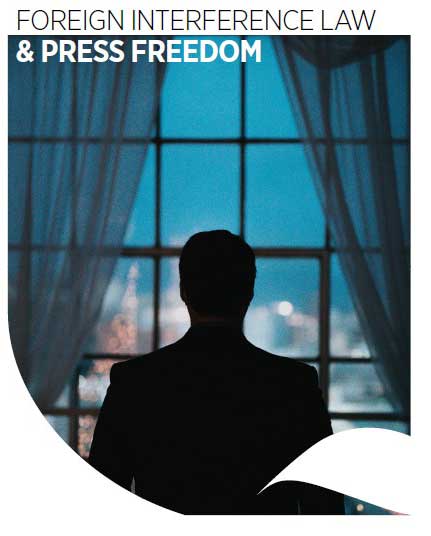 Foreign Interference Law and Press Freedom
Foreign Interference Law and Press Freedom
Reform Briefing 1/2022 | Sarah Kendall
2018 laws introduced 9 new foreign interference offences to Australian law. This policy paper provides an overview of these laws, explains their impact on the media (particularly foreign organisations and journalists), and outlines a reform agenda to tackle foreign interference without sacrificng press freedom.
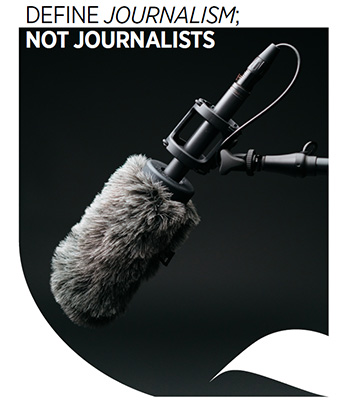 Define Journalism; Not Journalists
Define Journalism; Not Journalists
Reform Briefing 3/2021 | Peter Greste
Journalism plays a crucial role in Australia’s democracy, and given the extent of change that the industry has gone through in the digital revolution, it's essential that legislation be updated to include a more appropriate definition.
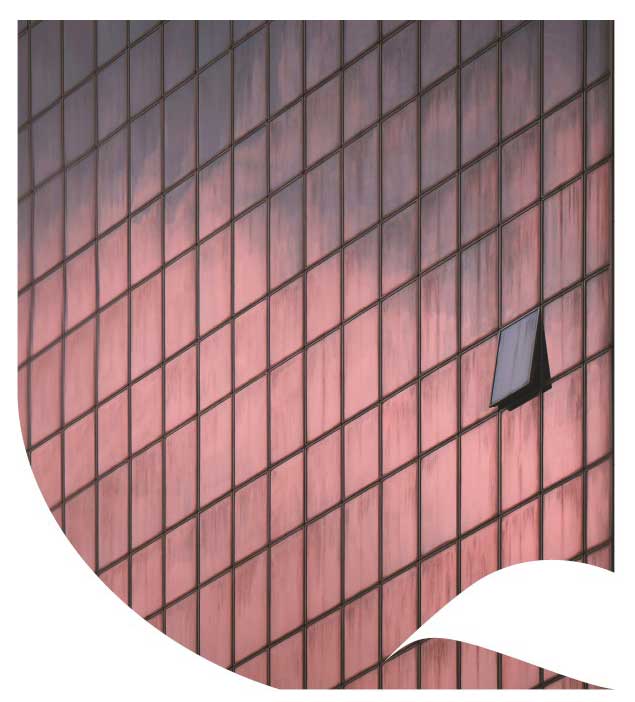 Closed Justice and Press Freedom
Closed Justice and Press Freedom
Background Briefing 2/2021 | Lucy Noble-Dickinson & Rebecca Ananian-Welsh
Journalists play an important role in facilitating open justice and pushing back against claims of secrecy. Justifications for closed courts and secrecy include to protect persons, information or national security.
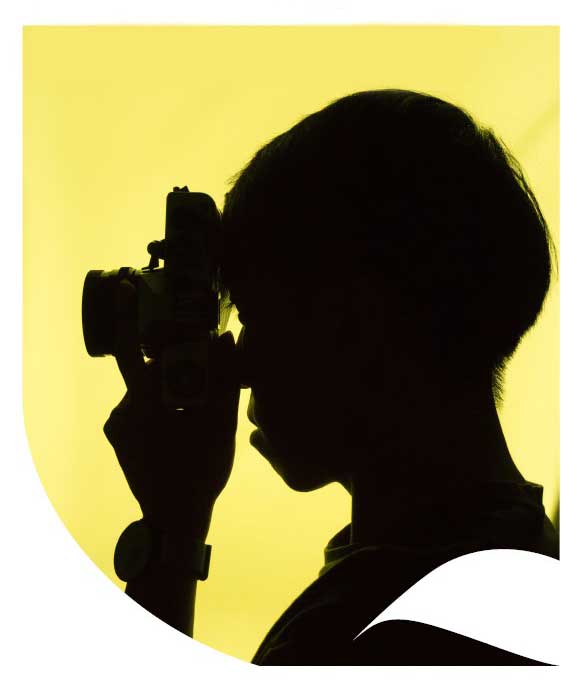 Who is a Journalist?
Who is a Journalist?
Background Briefing 1/2021 | Dominic Frost
Legal definitions of a journalist operate in every Australian State and Territory and under federal law. Is it possible to define a journalist in law? Should a uniform definition be adopted?
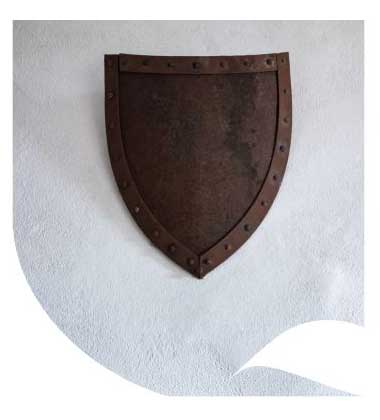 Reforming Australian Shield Laws
Reforming Australian Shield Laws
Reform Briefing 2/2021 | Anna Kretowicz
An overview of the current state of Australian shield laws, with reform recommendations to better protect source confidentiality and press freedom, without unduly compromising the public interest in law enforcement.
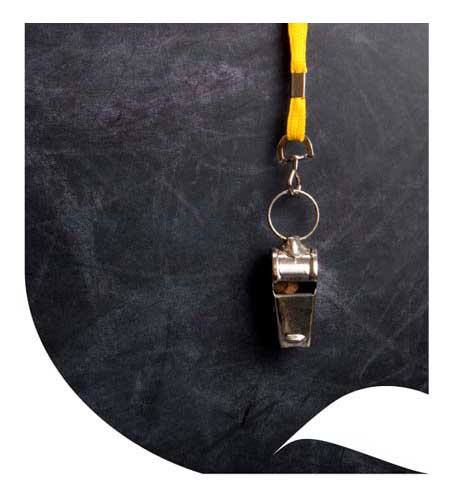 Whistleblowing to the Media
Whistleblowing to the Media
Reform Briefing 2/2020 | Rebecca Ananian-Welsh
This Policy Paper summarises and critiques the avenues by which a public sector worker may make a protected disclosure of information to the media.
 Espionage and Press Freedom in Australia
Espionage and Press Freedom in Australia
Reform Briefing 1/2020 | Sarah Kendall
An overview of Australia’s espionage laws, explaining their impact on media and identifying law reform options to protect national security without unduly undermining press freedom.
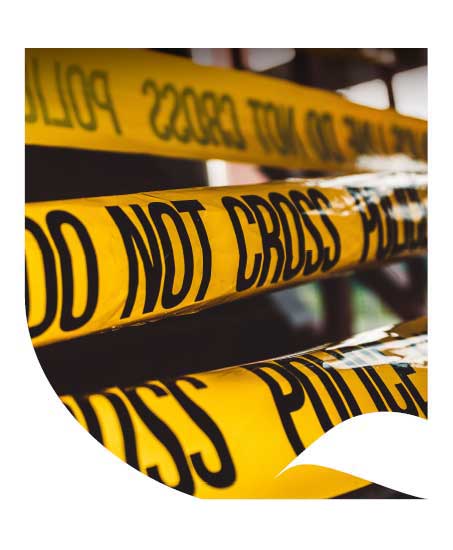 The 2019 AFP Raids on Australian Journalists
The 2019 AFP Raids on Australian Journalists
Background Briefing 1/2020 | Rebecca Ananian-Welsh
The AFP raids have become a focal point for debate concerning the recognition, protection and health of press freedom in Australia. In this Policy Paper, we provide a background to those raids and consider their legal and political consequences.
Why press freedom?
Watch Dr Ananian-Welsh discuss what inspired her to start research into press freedom and how the suite of policy papers came about.
New Frontiers of Research Episode 1: Press Freedom from UQ Law on Youtube with transcript (5m:06s).
Rebecca Ananian-Welsh in conversation with Peter Greste
In this interview, award-winning journalist, press freedom advocate and UNESCO Chair in Journalism and Communications at UQ, Professor Peter Greste, speaks with Dr Rebecca Ananian-Welsh about press freedom in Australia. With an introduction by Deborah Terry OA, UQ Vice Chancellor and President on the occasion of Dr Ananian-Welsh winning the Paul Bourke Award for excellence in social sciences scholarship (YouTube, 42m)
UQ Law research
Connect with our researchers
Collaborate with us to solve today's pressing challenges. Find out how we can work together.
Find a researcher by name
Find researchers by research area
Research themes & challenges
Potential HDR projects
Summer/Winter research scholarships
What's on
Research groups
Australian Centre for Private Law
Centre for Public, International and Comparative Law
Food Security and Intellectual Property
Indigenous People and the Law
Law and the Future of War
Law and Religion in the Asia-Pacific
Law, Science and Technology
Marine and Shipping Law Unit
UQ Solomon Islands Partnership
